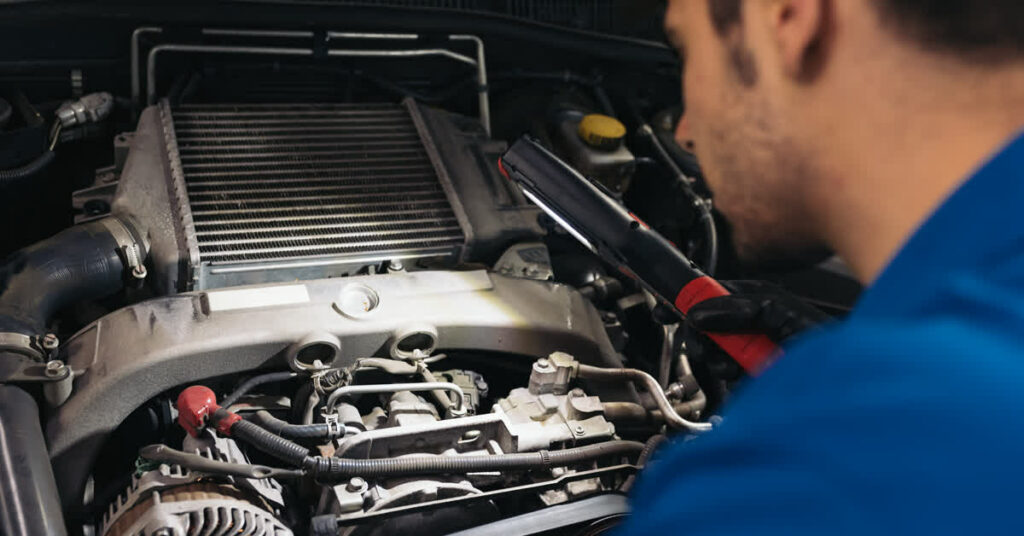
Mastering the Art of 100,000 Miles Maintenance: Secrets to Keep Your Vehicle Running Smoothly
As we embark on our journey through the countless miles of adventure, our trusty vehicles become our steadfast companions. Just like us, they require regular care and attention to maintain their peak performance. In the realm of automotive longevity, the 100,000-miles mark is a significant milestone. In this article, we will unveil the secrets of 100.000 Miles Maintenance, providing you with expert insights on how to keep your cherished vehicle running smoothly for many miles to come.
Regular Inspections: The Power of Prevention
- Engage in comprehensive inspections of vital components such as brakes, suspension, transmission, coolant system, and exhaust system.
- Detect and address minor problems early on to save yourself from costly repairs down the road.
Fluids: The Lifeblood of Your Vehicle
- Pay close attention to the condition and levels of essential fluids like engine oil, transmission fluid, coolant, and brake fluid.
- Regularly check and change fluids as recommended by the manufacturer to keep vital organs in top shape.
Timing Belt: A Stitch in Time Saves Nine
- For many vehicles, a timing belt change is due at the 100,000-miles maintenance.
- Timing belt failure can result in catastrophic damage, so don’t overlook this critical maintenance task.

Spark Plugs and Ignition System: Ensuring Optimal Performance
- Worn-out spark plugs affect fuel efficiency and engine performance.
- Inspect and replace spark plugs to keep your engine firing on all cylinders.
- Assess the condition of the ignition system for optimal power delivery.
Suspension and Steering Components: Smooth and Precise Handling
- Inspect and replace worn-out suspension components like shocks, struts, and bushings.
- Evaluate the condition of steering components, such as tie rods and ball joints, for optimal control and safety.
Air Filter and Fuel System: Maximizing Efficiency
- A clogged air filter restricts airflow to the engine, hindering performance and fuel efficiency.
- Regularly inspect and replace the air filter to maintain an optimum air-to-fuel ratio.
- Consider a fuel system cleaning to remove deposits or contaminants that impede fuel delivery, improving overall engine performance.
Electrical System and Battery: Powering Your Vehicle
- Inspect the battery and terminals for signs of corrosion, ensuring a secure connection.
- Check the alternator and starter for proper charging and starting capabilities.

what is the best way to test the performance of the car after regular maintenance?
A remarkable device is known as a Mileage blocker, which has the ability to prevent the accumulation of mileage from all control units. It can accomplish this task without leaving any traces. Any modified data remains entirely undetectable. This high-quality module has been designed for practical purposes, such as testing your vehicle without worrying about unnecessary miles appearing on the odometer. However, due to its flawless performance and reliability, it has also been misused for unethical purposes. The manufacturers of these tools do not endorse their unethical utilization. The greatest advantage it offers is that the kilometers no longer accumulate spontaneously after the module has been removed.
Conclusion
As your vehicle crosses the 100.000 miles threshold, a proactive approach to maintenance becomes paramount. By embracing these expert tips, you can safeguard your vehicle’s health and maximize its longevity. Regular inspections help identify potential issues early on. Timely fluid changes and replacements keep vital systems in top shape. Addressing crucial components like the timing belt, spark plugs, suspension, and fuel system ensures optimal performance. Embrace the art of 100,000 miles maintenance and embark on countless more miles of automotive adventures with peace of mind.




